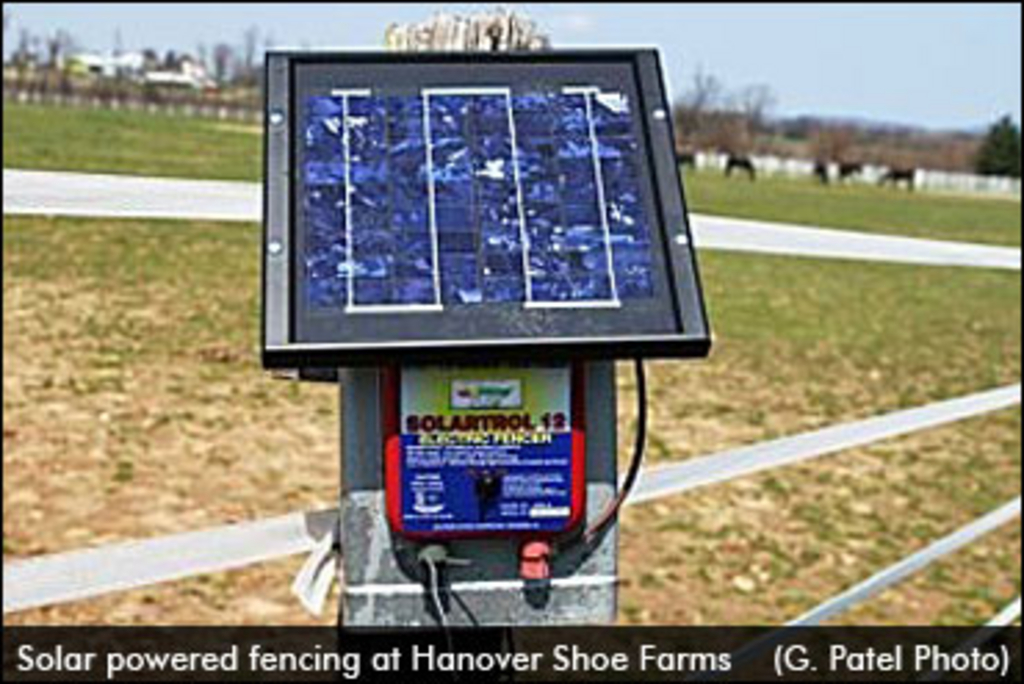Every Day Is Earth Day At Hanover

Not only is Hanover Shoe Farms the largest breeder of Standardbred horses in the world, it has also integrated several environmentally friendly practices in to its everyday business
One of the most important, and expensive components of raising horses, is providing for construction and constant maintenance of fencing for the 1,200 or so horses that live at Hanover Shoe Farms. That fence is typically four boards and posts every few feet, or a combination of posts and wire mesh. A combination of factors calls for near-constant maintenance to the fencing, including rotting components because of rain exposure and the effects of a half-ton horse leaning against or rubbing up against fence.
Traditional wood or wire mesh fencing can also be a source of injury, especially for young horses. Like rambunctious human teenagers who drop dishes or knock over lamps, young Standardbreds occasionally run in to fences and injure themselves. Hanover’s gradual conversion to solar-powered electrified mesh tape has accomplished several goals.
“We have about 240 miles of fence, and 42 miles, or about 20 percent of our fencing, is solar-powered,” says Hanover President Jim Simpson. “It doesn’t take much power. It’s high voltage and real low amperage and if you’re an electrician you say that’s easy, that doesn’t pull much power. So this charges the battery during the day and just keeps the battery charged and does its thing.”
Simpson says that unlike the three to four injuries a year to yearlings likely caused by collisions with traditional fence, the solar-powered fence has not been a party to any injuries among the farm’s 400 or so yearlings.
“We haven’t lost a horse yet,” says Simpson. Deer are another story. “We have a lot of deer on the farm and occasionally they run through it and get tangled up in it. They get out, but you can see it was likely a deer that got it scrambled.
“We had 25 mares go through it one night and get out without consequence; that was interesting. Something must have spooked them – again probably deer and they ran right through the whole fence; they took out about 50 feet.
“We have both mares and yearlings behind the solar-powered fences. We separated two filly fields with it so if they did get through it, it would just be 50 fillies in a field instead of 25,” he noted.
Simpson says the farm, which has sales of about $9 million in yearlings each year, uses the solar fence right now just for filly fields and broodmares, trusting the sun to contain several million-dollars worth of horses.
The bedding for about 1,200 horses at Hanover is also part of its earth-friendly practices.
“We send 235 semis a year of manure to become mushroom compost,” says Simpson. “It actually has two lives beyond the use here. It goes to mushroom farms near Kennett Square, Pennsylvania to grow the mushrooms. They grow mushrooms with it for ‘X’ (number of) cycles and when it becomes suboptimal at some point, they sell the spent mushroom compost to nurseries and that helps grow rose gardens.”
This story courtesy of Harness Racing Communications, a division of the U.S. Trotting Association. For more information, visit ustrotting.com.

